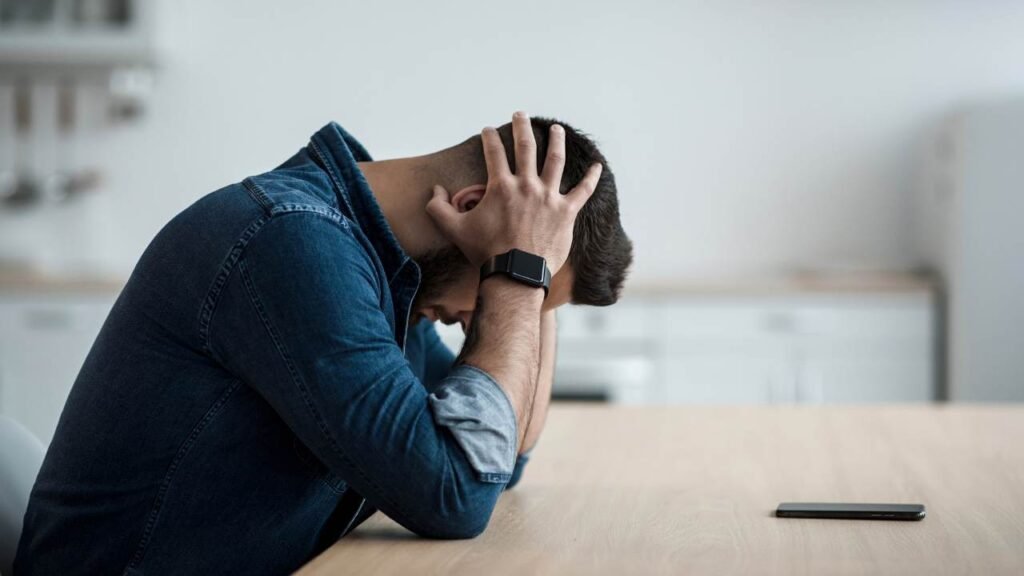Among alarmist social issues in the last few decades, one major is the relation between high unemployment rate and psychological distress. Given the mass layoffs caused by economic uncertainty, many people struggle to earn a livelihood and endure serious mental disorders. Cases of unemployment depression, a form of major depressive disorder, are numerous. In such a setting, discourse on mental wellbeing is very critical in that it encourages the affected people to secure treatment in case of need, hence reducing stigma.
What is unemployment depression?
Loss of job may result in unemployment depression, which is a clinical disorder marked by myriad mental and physical symptoms that include chronic melancholy and loss of interest in life. Since it is directly linked with the experience of losing one’s job and subsequent identity and financial problems, it differs from generic depression.
Symptoms and Signs of unemployment depression
The common symptoms experienced by the unemployed hence include the following:
- Sad or low: Feelings of hopelessness and a chronic state of dejection which does not seem to improve Loss of interest in usual activities: Loss of interest in formerly pleasurable activities; it includes hobbies, socializing, or even routine/ mundane tasks
- . Appetite and weight changes: Significant weight gain or loss coming from eating habits, which are characterized either by binge-eating or not eating enough.
- Sleep: Insomnia—one is unable to fall asleep—or hypersomnia—one is unable to stay awake—which in turn disrupts usual daily routine.
- Diminished interest or fatigue: The individual will always be tired, even after doing nothing, hence the inability to hold on to motivation.
- Worthlessness or excessive guilt: Severe self-criticism about past mistakes or-jobless condition
- Difficulty concentrating: difficulty paying attention to details, deciding what to do or remembering things.
- Irritability or restlessness: Easily annoyed or agitated behavior, inconsistent with the person’s usual pattern of behavior.
- Physical symptoms without clear physical cause: Headaches, stomach problems, chronic pain that does not resolve with usual therapy etc., with no apparent physical cause.
Most Impacted Communities
Whereas any person, irrespective of age or sex, can feel depressed about losing their job, people in the middle of their careers have an increased risk because they may be experiencing the loss of professional identity and security more acutely. Besides, some early career development factors such as self-worth of young people take a heavy blow if they remain unemployed for a very long time, till they find another job.
Causes of Unemployment Depression

Loss of Identity and Purpose
The loss of work, to many, is tantamount to the loss of part of their identity. A job, for many, does more than just provide a living; it forms part of their identity—something that adds a lot to their identity and something that they pride themselves on. It is because of this mental conditioning that such people may suffer acute depression in adjusting to finding their identity outside work.
Role of Work in Self-Esteem and Self-Identity
Many find that a regular working schedule provides them with more apparent control over life, organization, achievement, sociability, and connection to one’s society. Such elimination could be devastating, as it would affect a person negatively in his self-esteem or sanity.
Financial Stress and Uncertainty
In case he or she has lost his or her job, his or her financial condition may deteriorate and hit him or her like a ton of bricks.A feeling of no control over one’s own destiny, followed by the stress of urgently looking for a job may add to one’s already depressing state of mind with the likelihood of financial breakdown.
Long-term vs. Short-term Unemployment Issues
A major factor in the intensity of depression is the length of time that a person is unemployed. Anxiety and worry brought on by a lack of work could be temporary and go away once you find a job. But long term unemployment depression brought on by being out of work for an extended period of time need more involved treatments.
Effects of Unemployment depression on Mental Wellness.

Psychological and Emotional Impact
The state of unemployment can lead to serious psychological and emotional impacts. Examples of psychological effects common after the event of unemployment include anxiety, isolation, and feelings of powerlessness. In that view, stress occasioned by loss of a normal schedule and fear of what the future holds may intensify feelings of uselessness and hopelessness.
It can leave people humiliated and reluctant to share their problems with working colleagues, thus heaping anxiety and isolation due to financial uncertainty. One feels helpless with frequent job searches that fail and puts one in a powerless position over one’s life.
Impact on Family Life and Relationships
Unemployment is a burden not only to the person but also to their social and familial ties. If people are preoccupied by the thought of their financial future and are under much stress due to unemployment, this may reflect in their relations at home and may cause quarrels. Even younger members of the family feel this stretch and act differently. The family dynamic can get stretched even further when partners start quarreling more often about money and future plans.
Physical Health Effects of depression from Unemployment
Diseases caused by Stress
The major physical health problems that can result from the ongoing stress of job loss are high blood pressure, cardiovascular difficulties, and a compromised immune system. Stress aggravates any underlying medical or physical problems, thereby making the search for new employment even harder because of a decline in health.
Changes in Lifestyle as a Result of Job Loss
Many people’s lifestyle alter when they are unemployed. Exercise may be reduced if people stay more at home. Obesity and diabetes are two medical conditions that can arise due to change in eating habits, tipping more towards processed and cheap food.
How to cope with Unemployment Depression
Professional Help Search
Identifying the necessity of help for mental well-being and health is also imperative. Therapeutic and counseling forces can help avail resources by which one can cope up with the emotional and mental pressures due to unemployment. Mostly, all the community centers, non-profit organizations and health centers provide services at sliding scale with income and sometimes even without any cost for the concerned person who is not able to bear the costs.
Building a Support Network
A good support network needs to be established. Reaching out to social and community networks can offer emotional support and practical assistance- like referrals for childcare or job leads. Also helpful are the breadth of online support groups and forums where any person can make contact with others facing similar problems and solicit help and advice.
Keeping Routine and Meaning
Keeping a regular schedule has several advantages. A routine to follow can easily create feelings of accomplishment and stability and be as good as holding a 9 to 5 job. In this way, one can make time for volunteering and part-time work for some meaningful activities that will increase skills attainments and professional network expansion.
Financial Management Tips
An unemployed person needs a good budget. Based on where you stand now, reassess and update your budget with spending priorities being only on necessary expenditures. You can seek help from professionals or take workshops to find ways to stretch your dollars during the hard time.
Conclusion
Dealing with unemployment depression is tough but not impossible. One requires tackling, in advance, the physical and mental effects of unemployment. Therefore, very vital steps towards rehabilitation entail keeping connected with community support, seeking professional help, maintaining healthy routines, and managing finances. Now, we need to continue talking about mental well-being and offering one another help so that none of those who have fallen victim to unemployment depression will feel lonely.


